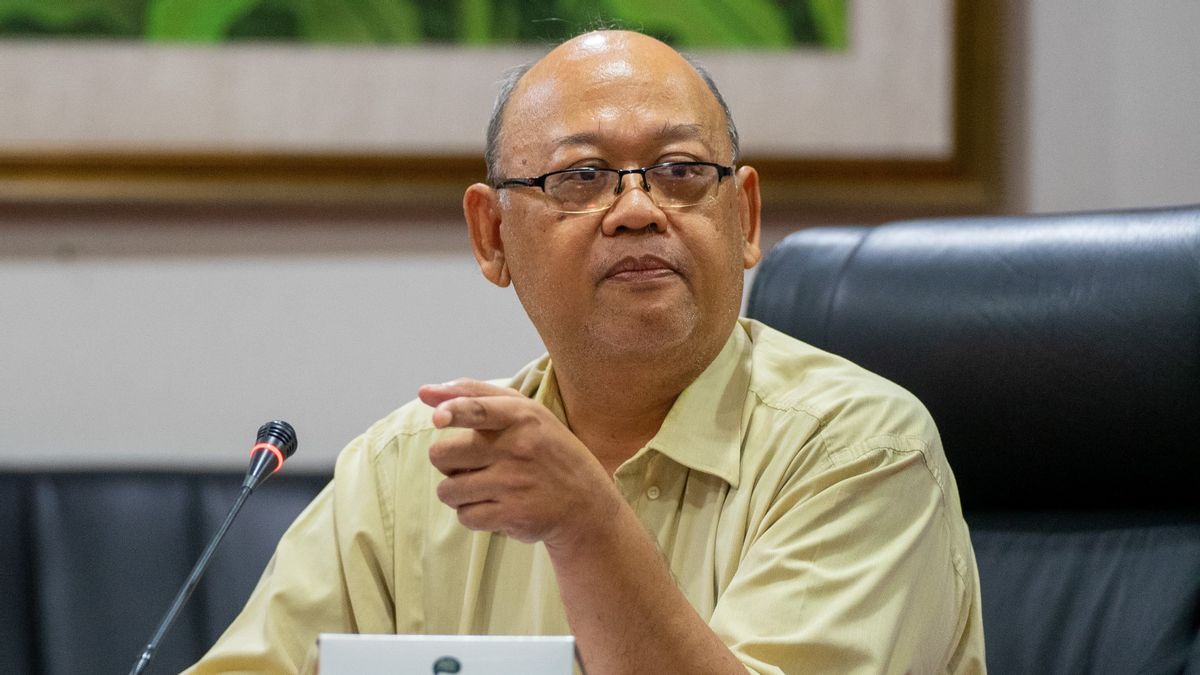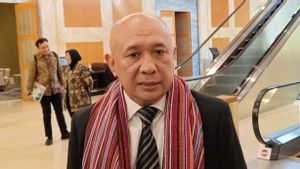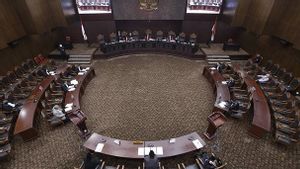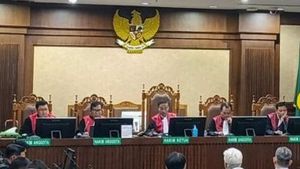JAKARTA - Indonesia managed to control inflation amid high world inflation. Among the G20 countries, Indonesia's inflation rate in August 2023 was 3.27 percent, the fourth lowest after China (-0.30 percent), Saudi Arabia (2.31 percent), and the United States (3.18 percent). Indonesia's inflation is also lower than Europe, which is 5.3 percent.
"This should be grateful, considering that several countries are experiencing hyperinflation. Such as Argentina, 113.4 percent, and Turkey, 47.8 percent," explained Deputy III of the Presidential Chief of Staff, Edy Priyono, at the Bina Graha building, Jakarta, Thursday 7 September.
Edy said the control of Indonesian inflation was driven by all components. Namely, the core inflation component or core inflation, administrative price, and the food component or volatile food.
In the core inflation component, explained Edy, it tends to be stable at a low level, namely 2.18 percent (yoy). Meanwhile, the administrative price inflation component decreased to 8.05 percent, after previously peaking in December 2022 at 13.34, the impact of the government's energy price adjustment.
Indonesia's inflation control, added Edy, is also inseparable from the push of food components or volatile food. In August 2023, the component of food inflation was at the level of 2.42 percent or lower than 2022, which was 5.61 percent.
"This means that in the midst of the turmoil in global food prices, Indonesia is relatively capable of controlling food prices which are strategic needs," he said.
Edy conveyed the success of the inflation control policy in Indonesia as a result of a comprehensive combination of close monetary, fiscal, and coordination policies through the Central Inflation Control Team (TPIP) and the Regional Inflation Control Team (TPID). This policy strategy is not widely implemented in other countries.
"Because in almost all countries, inflation control is carried out only through monetary policy instruments," he explained.
In terms of fiscal policy, said Edy, inflation control is carried out by continuing to strengthen the supply side through various food security programs.
The government allocates a budget of Rp. 104.2 to develop agricultural cultivation, strengthening infrastructure, agricultural facilities and infrastructure, credit interest subsidies and fertilizer subsidies, as well as supporting other infrastructure facilities, such as roads. Meanwhile, in monetary policy, Edy further explained, in 2023 the normalization of monetary policy is directed to be consistent and in line with the distance of monetary policy.
This is to ensure that core inflation is controlled in the range of 3.0 plus 1 percent. This is done through the determination of the BI7DRR interest rate which is gradually increased and maintained at the level of 5.75 percent from January to August 2023.
"In addition, there is also strengthening the stability of the rupiah exchange rate as part of efforts to control inflation, especially imported inflation," said Edy.
As for the coordination and synergy between the government and Bank Indonesia through TPIP and TPID, said Edy, one of them is by strengthening the National Movement for Food Inflation Control (GNPIP) in various regions.
Where TPIP-TPID continues to encourage the optimization of the 4K Strategy: Affordability of Prices, Availability of Supply, Smooth Distribution, and Effective Communication.
SEE ALSO:
The Deputy for the Economy of the Presidential Chief of Staff also emphasized that although inflation is relatively under control, the government continues to make preventive and anticipatory efforts.
Among them are by continuing to monitor price developments, especially strategic food prices, and strengthening coordination between the central and regional governments, as well as the government and business actors.
The English, Chinese, Japanese, Arabic, and French versions are automatically generated by the AI. So there may still be inaccuracies in translating, please always see Indonesian as our main language. (system supported by DigitalSiber.id)
















